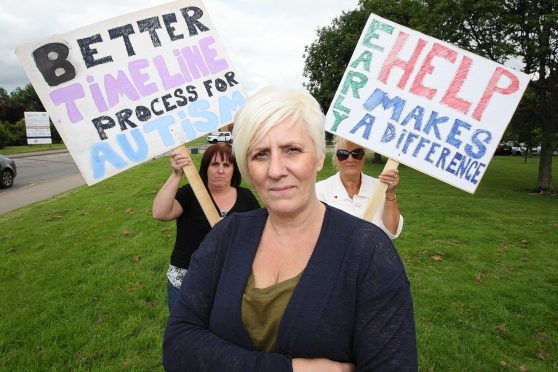Children in the Highlands with suspected psychiatric and behavioural conditions will be the first in the world to use online assessments to fast track their diagnosis.
Assessment waiting times for conditions such as autism, ADHD or anxiety and depression under the current system have been widely acknowledged as inadequate, with children often being referred to the wrong health professionals due to a lack of time and training among GPs and teachers.
But a new European trial led by the University of Aberdeen will use an online questionnaire, in a bid to speed up referrals to see if it leads to healthier and happier children at an earlier stage.
The Development and Wellbeing Assessment will involve 50% of the children with suspected conditions being referred through the online questionnaire, with 50% continuing with the current system.
The information is then passes to a child psychologist who looks at the data and makes a recommendation about the right service for the young person.
Parents will be interviewed alone if their child is under five years old, but teachers will also be interviewed if they are above five, and children aged 11 and older can take an assessment.
Professor Phil Wilson, head of the University Aberdeen’s Centre for Rural Health, said results of the trial’s effectiveness are expected to become clear about 18 months from now.
He added that NHS Highland is the first health authority in the world to use the online questionnaire for referrals, and that they will seek to make it permanent if the trial is a success.
Inverness woman Sylvia Mackenzie, who campaigned for changes in the system to improve waiting times, said is “cautiously optimistic” about the trial and “keen to see the outcome.”
Mrs Mackenzie, who spent 10 years battling the authorities to get her son diagnosed with autism, added: “I feel that a full face to face interview/appointment is preferred, however this can be emotionally straining for both the child and parent. A web based appointment in more familiar surroundings could ease this.
“It is encouraging to see new systems/ideas being trialled to try and improve the current ineffective system. If successful it would be good to see this implemented in NHS Highland and, coupled with the recent work that has gone to revamp the whole system, this could increase the improvements in the new system even more.”
